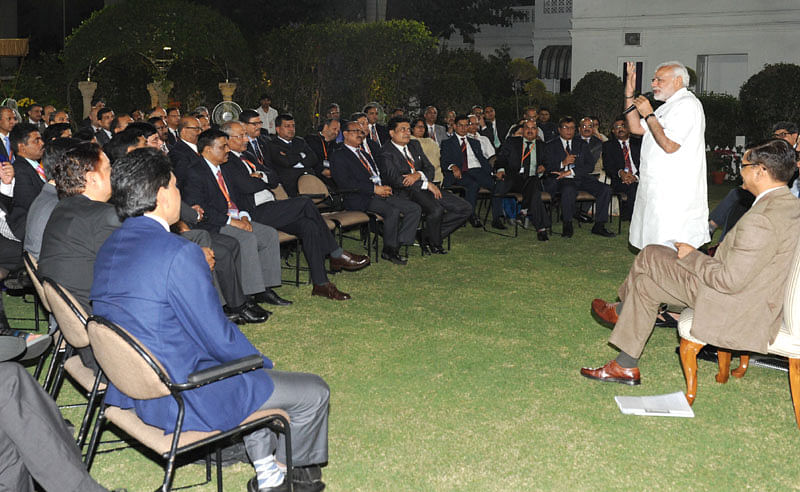New Delhi: With the Delhi High Court refusing to strike down the Narendra Modi government’s 360-degree review system for senior civil servants, IAS officers feel that they have no recourse left against “arbitrary” appraisals.
Dismissing a review plea filed by a senior IAS officer, who was rejected for empanelment as additional secretary and secretary thrice, the high court had last month observed that the guidelines framed by the Centre for the 360-degree review system or Multi-Source Feedback (MSF) were not illegal.
While the senior IAS officer who had filed the case had challenged the guidelines for not being made public, a bench of Justice S. Muralidhar and Justice Talwant Singh had noted that the guidelines were framed to “aid the CoS/EPC (Committee of Secretaries/ Empanelment Committee) in carrying out their tasks, their use for arriving at a decision cannot be said to be illegal”.
Also read: 50% drop in IAS, IPS officers promoted in central govt in 2018, and no one can explain why
A contentious system
Instituted in 2015, the 360-degree review system sought to change the way civil servants are chosen to the two senior-most positions in the government — the ranks of secretary and additional secretary.
Under this system, a committee of experts collects feedback about a candidate, through the phone, from anonymous “stakeholders” that includes their senior and junior colleagues, peers. It also takes feedback from people outside the government, on a prescribed form.
While the stated objective of the system is to make the evaluation of civil servants more comprehensive, it has been challenged several times by officers who have called the process opaque and vulnerable to misuse.
When contacted by ThePrint, the senior IAS officer who had challenged the system in the court refused to comment on the judgment. In his plea, the officer had argued that he was rejected for empanelment on the basis of MSF guidelines that were never made public, thereby making the decision to reject him arbitrary.
Also read: Na tired, Na retired — How Modi govt uses Vajpayee line to hold on to retired IAS officers
‘Several officers have suffered’
A senior IAS officer, who is part of the UP IAS Association, said several officers have “suffered” since the government brought in this “opaque” process of empanelment, but there is no recourse that officers have in the face of this “arbitrary mechanism”.
“Through this one move, the government ensured that anyone can be rejected on any grounds… This system is especially discriminatory for those from SC/ST communities or those who question (the government) in the slightest way,” the officer said.
Last year, the UP IAS Association had passed a resolution urging the central government to make the evaluation process less opaque, and make the process of empanelment of IAS officers for central deputation more transparent.
Speaking to ThePrint, the association’s chairman Pravir Kumar had said: “It is a very non-transparent process, which goes against the principle of natural justice because no officer knows why they are being empanelled or rejected.”
Also read: UPSC to recruit 100 fewer civil servants than last year despite shortage
Parliamentary panels back officers’ stand
In 2017, the Parliamentary Standing Committee on personnel, public grievances, law and justice had also called the 360-degree system “opaque, non-transparent and subjective”.
Questioning the legal tenability of the system, the committee had then said, “Acting on feedback so received puts the concerned officer in a disadvantageous position as the remedies available to him in case his annual appraisal report has not been written objectively are not available to him in this process. Acting on such feedback behind the back of the officer may not be legally tenable.”
This year too, the parliamentary committee had noted that the “feedback in this process is obtained informally leaving it susceptible to manipulations”.
“The committee observes that the feedback received from subordinates and stakeholders may sometimes be biased and can lack objectivity, particularly if the officer had an occasion to discipline his subordinate or he was unable to meet the unjustified demands of the stakeholders,” the report presented in Rajya Sabha Friday said.
“The committee recommends that the government should take steps to ensure that such biased feedback is not relied upon in order that honest and deserving civil servants are not victimised,” it added.
Also read: UP IAS officer in Ram temple trust is Yogi right-hand man who led crackdown on CAA protests
